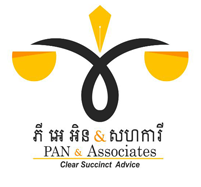Overview
Loan sharking, a rampant problem in Cambodia, involves providing loans with exorbitant interest rates and demanding aggressive repayment terms. This illegal practice often targets vulnerable individuals, trapping them in a cycle of debt and financial hardship. To combat this predatory lending, Cambodian law has implemented various legal frameworks designed to regulate lending practices and protect consumers.
Legal Framework
- Civil Code of Cambodia (2007)
The Civil Code of Cambodia provides a crucial legal framework for regulating contracts, including loan agreements. Article 916 specifically addresses usury, stipulating that interest rates must be agreed upon within reasonable limits as determined by the National Bank of Cambodia (NBC). Any loan agreement with an excessively high interest rate can be rendered void and unenforceable under this law, offering a legal shield against predatory lending practices.
- Law on Banking and Financial Institutions (1999)
The Law on Banking and Financial Institutions in Cambodia mandates that all financial institutions, including lenders, must obtain a license from the National Bank of Cambodia (NBC). Operating as an unlicensed lender is a direct violation of this law. As a result, the unlicensed lending practices commonly employed by loan sharks are illegal, exposing them to significant legal consequences.
- Penal Code of Cambodia (2009)
The Penal Code of Cambodia takes a strong stance against loan sharking by criminalizing lending at unreasonable interest rates and the use of coercive tactics for debt collection. Articles 386 and 387 outline the penalties for these offenses, which can include substantial fines and imprisonment.
- Consumer Protection Law (2019)
Cambodia’s Consumer Protection Law strengthens consumer protections by requiring transparency in financial transactions. This means that all lenders, including informal ones, must clearly disclose the terms and interest rates of their loans. Failure to comply with these requirements can result in penalties, further deterring loan sharking activities.
Penalties for Loan Sharking
Under Cambodian law, individuals or entities convicted of loan sharking may face:
- Fines: Significant financial penalties imposed under the Penal Code and Banking Law.
- Imprisonment: Offenders may receive prison sentences, depending on the severity of their actions.
- Void Loan Agreements: Courts may nullify usurious loan agreements, relieving borrowers of repayment obligations.
- Asset Confiscation: In severe cases, loan sharks’ assets may be seized to enforce penalties or provide compensation to victims.
Obstacles in the Fight Against Loan Sharking in Cambodia
Despite Cambodia’s legal framework aimed at combating loan sharking, several challenges hinder effective enforcement:
- Informal Lending Practices: Loan sharks often operate outside of formal financial systems, making them difficult to detect and prosecute.
- Lack of Public Awareness: Many borrowers, especially in rural areas, are unaware of their legal rights and may not report illegal lending practices.
- Fear of Retaliation: Victims may hesitate to report loan sharks due to concerns about violence or intimidation.
Conclusion
Loan sharking in Cambodia poses a substantial threat to both the economy and society. This predatory practice undermines formal financial institutions, creates illicit financial flows, hinders economic development, and exacerbates social inequalities.
To effectively address these challenges, Cambodia must strengthen its legal framework, improve enforcement efforts, and raise public awareness about the dangers of loan sharking.
